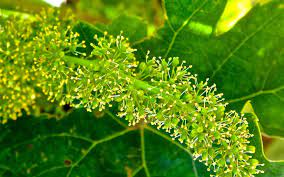The Lemon Fruits: Economic Importance, Uses, and By-Products
Lemon fruits, scientifically known as Citrus limon, are iconic citrus fruits prized for their vibrant yellow color, refreshing aroma, and tangy flavor. They belong to the Rutaceae family and are native to South Asia, primarily Northeast India. Lemon trees are evergreen, small to medium-sized with elliptical leaves, and bear fruit year-round in warm climates.
The fruit itself is oval to oblong in shape, typically 5-7 centimeters in diameter, and covered with a smooth, thin, yellow peel (rind). The peel contains essential oils that give lemons their characteristic scent and flavor. The pulp of a lemon is divided into segments filled with juicy vesicles containing the lemon juice, which is a key component of its culinary and medicinal uses.
Nutritionally, lemons are low in calories but packed with essential nutrients. They are an excellent source of vitamin C (ascorbic acid), providing about 88% of the recommended daily intake per 100 grams. Vitamin C is crucial for immune function, collagen synthesis, wound healing, and as an antioxidant protecting cells from damage. Lemons also contain smaller amounts of B-complex vitamins such as folate, thiamine (B1), pyridoxine (B6), and pantothenic acid (B5), which play roles in energy metabolism and nervous system health.
Mineral-wise, lemons offer potassium, magnesium, calcium, and phosphorus, which contribute to various bodily functions including nerve function, muscle contraction, and bone health. They also provide dietary fiber, primarily in the form of pectin, which aids digestion, promotes satiety, and supports healthy cholesterol levels.
In culinary applications, lemon fruits are prized for their versatility. The juice and zest (grated peel) are used to enhance the flavor of both sweet and savory dishes. Lemon juice is a popular ingredient in salad dressings, marinades, beverages like lemonade, and desserts such as lemon meringue pie and lemon bars. The zest adds a bright, citrusy aroma to baked goods, sauces, and cocktails.
Beyond the kitchen, lemons have various household uses. The acidity of lemon juice makes it effective as a natural cleaner and disinfectant. It can be used to remove stains, polish surfaces, and neutralize odors. Lemon essential oil, extracted from the peel, is used in aromatherapy for its uplifting scent and purported health benefits.
Medicinally, lemons have been traditionally used to alleviate symptoms of sore throat and colds due to their vitamin C content and antibacterial properties. They are also believed to aid digestion, detoxify the liver, and support overall immune function. Lemon water, a mixture of lemon juice and water, is a popular beverage believed to promote hydration and provide a boost of vitamin C and antioxidants.
While lemons offer numerous health benefits and culinary uses, it’s essential to note potential drawbacks. The acidic nature of lemon juice can erode tooth enamel over time, especially if consumed frequently in undiluted form. Individuals with citrus allergies should also exercise caution, as lemons can trigger allergic reactions in sensitive individuals.
In conclusion, lemon fruits are not only a delicious addition to various dishes but also a nutritional powerhouse rich in vitamins, minerals, and antioxidants. Whether enjoyed fresh, squeezed into a drink, or used in household cleaning, lemons continue to be valued for their versatility and health-promoting properties worldwide.
The Economic Importance and Uses of Lemon Fruits

1. Culinary Uses: Lemons are widely used in cooking and baking to enhance flavor in dishes, desserts, and beverages.
2. Beverage Industry: Lemon juice is a key ingredient in a variety of drinks, including lemonade, cocktails, and soft drinks.
3. Nutritional Value: Lemons are rich in vitamin C, antioxidants, and other essential nutrients, making them important for human health.
4. Preservatives: The acidic nature of lemons helps preserve food by preventing the growth of bacteria and extending shelf life.
5. Pharmaceuticals: Lemon extracts are used in medicinal products and supplements for their health benefits.
6. Cleaning Products: The natural acidity and fresh scent of lemons make them effective in eco-friendly cleaning products.
7. Cosmetics and Skincare: Lemon extracts are used in cosmetics and skincare products for their brightening and astringent properties.
8. Aromatherapy: Lemon essential oil is used in aromatherapy for its uplifting and invigorating scent.
9. Agriculture: Lemon trees are cultivated extensively, providing income for farmers and contributing to agricultural economies.
10. Pest Control: Lemon oil and extracts are used as natural insect repellents and pesticides.
11. Weight Loss: Lemon juice is often included in weight loss diets and detox programs for its purported metabolism-boosting properties.
12. Flavoring Agent: Lemon is used as a natural flavoring in a wide range of food products, from candies to sauces.
13. Industrial Applications: Lemon by-products are used in various industrial processes, including the production of citric acid.
14. Textile Industry: Lemon juice is used as a natural bleaching agent in the textile industry.
15. Cultural Significance: Lemons have cultural and traditional significance in many societies, often used in rituals and festivals.
16. Environmental Benefits: Lemon trees contribute to the environment by providing green cover and improving air quality.
17. Economic Stability: Lemon cultivation supports the livelihoods of many people involved in farming, processing, and selling lemons, contributing to economic stability.
18. Research and Development: Lemons are studied for their potential health benefits and applications in various fields, including medicine and nutrition.
Read Also: 18 Medicinal Health Benefits Of Alchornea glandulosa (Christmas bush)
The Products and By-products That Can Be Derived From Lemon Fruits

1. Lemon Juice: Extracted by squeezing fresh lemons, used in cooking, baking, and beverages.
2. Lemon Zest: The outer skin grated to add flavor to dishes and desserts.
3. Lemon Oil: Extracted from the peel through cold pressing, used in aromatherapy, cleaning products, and cosmetics.
4. Lemon Extract: Concentrated liquid made by soaking lemon peel in alcohol, used as a flavoring agent.
5. Lemon Powder: Dried and ground lemon peel used as a seasoning or flavoring ingredient.
6. Citric Acid: Extracted from lemon juice, used as a preservative and flavoring agent in the food and beverage industry.
7. Pectin: Extracted from lemon peel, used as a gelling agent in jams and jellies.
8. Lemonade: A popular beverage made from lemon juice, water, and sugar.
9. Lemon Marmalade: A spread made by cooking lemon peel, pulp, and juice with sugar.
10. Lemon Curd: A dessert spread made from lemon juice, sugar, eggs, and butter.
11. Lemon Essential Oil: Distilled from lemon peel for use in aromatherapy and natural remedies.
12. Lemon Vinegar: Made by infusing vinegar with lemon peel, used in salad dressings and cleaning products.
13. Lemon Soap: Lemon oil or zest used in soap making for its fragrance and antibacterial properties.
14. Lemon Scrub: A skincare product made with lemon zest and other exfoliating ingredients.
15. Lemon Liqueur: A liqueur like limoncello made by steeping lemon zest in alcohol and sugar.
16. Lemon Candies: Sweets made with lemon juice or zest for flavoring.
17. Biofuels: Lemon by-products can be converted into biofuels through fermentation or other processes.
Read Also: 18 Medicinal Health Benefits Of Alchornea glandulosa (Christmas bush)
Frequently Asked Questions (FAQ’s) About Lemon Fruits

1. What are the health benefits of lemon fruits?
Lemons are rich in vitamin C, antioxidants, and other nutrients that support the immune system and overall health.
2. How can I use lemon in cooking?
Lemon juice and zest can be used to add flavor to dishes, marinades, desserts, and beverages.
3. What products can be made from lemon fruits?
Products include lemon juice, zest, oil, extract, powder, citric acid, pectin, lemonade, marmalade, curd, and liqueur.
4. How is lemon oil extracted?
Lemon oil is extracted from the peel through a process called cold pressing.
5. Can lemon juice be used as a preservative?
Yes, the acidic nature of lemon juice helps prevent the growth of bacteria and extends the shelf life of food.
6. What are the uses of lemon zest?
Lemon zest is used to add flavor to dishes, desserts, and beverages, as well as in baking.
7. Is lemon good for skincare?
Yes, lemon extracts are used in skincare products for their brightening, exfoliating, and astringent properties.
8. Can lemon be used in cleaning products?
Yes, the natural acidity and fresh scent of lemons make them effective in eco-friendly cleaning products.
9. How is citric acid derived from lemons?
Citric acid is extracted from lemon juice through a crystallization process.
10. Are there industrial applications for lemon by-products?
Yes, lemon by-products are used in various industrial processes, including the production of citric acid, biofuels, and biodegradable materials.
Read Also: Complete Composting Guide for Beginners









